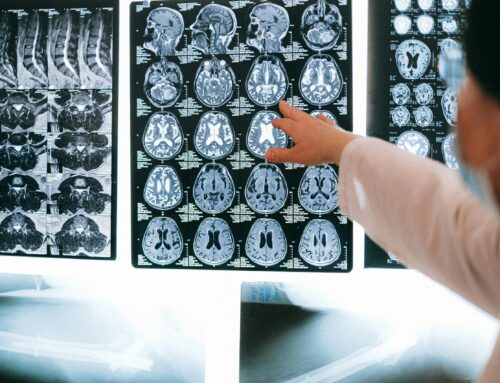Communication is something most of us take for granted. We effortlessly form sentences, find the right words, and understand what others say to us. But for individuals who have experienced a traumatic brain injury (TBI), these once-automatic abilities can suddenly become incredibly difficult. This is where aphasia comes into play, a condition that affects thousands of people each year and significantly impacts their ability to communicate.
Understanding Aphasia
Aphasia is a language disorder that affects a person’s ability to communicate. It can impact speaking, understanding speech, reading, and writing. Aphasia doesn’t affect intelligence. People with aphasia know what they want to say, but their brain struggles to retrieve the words or process language the way it once did.
The condition occurs when the language centers of the brain are damaged. While stroke is the most common cause of aphasia, traumatic brain injuries from accidents, falls, or impacts can also trigger this disorder. When someone experiences a TBI, the force of the impact can bruise or damage the areas of the brain responsible for language processing, typically located in the left hemisphere.
Types of Aphasia Related to TBI
Not all aphasia looks the same. Depending on which part of the brain is injured, individuals may experience different types of communication challenges.
Expressive aphasia makes it difficult for people to produce language. They might understand what others are saying perfectly well, but struggle to form complete sentences or find the right words. Their speech may be slow and effortful, often leaving out small words like “is” or “the.”
Receptive aphasia affects comprehension. People with this type can speak fluently, but their words may not make sense, and they have difficulty understanding what others say to them. They might not realize their speech is unclear, which can be frustrating for both the individual and their loved ones.
Global aphasia is the most severe form, affecting both expression and comprehension. This type often occurs with more extensive brain damage and requires intensive rehabilitation.
Anomic aphasia primarily affects word retrieval. People with this type struggle to find specific words, especially nouns and verbs, though their grammar and comprehension generally remain intact. (1)
How TBI Causes Aphasia
When a traumatic brain injury occurs, the brain can be damaged in several ways. The initial impact can cause bruising, bleeding, or tearing of brain tissue. Swelling afterward can put additional pressure on language centers. Even if the impact isn’t directly to the language areas, the force can cause the brain to move within the skull, creating widespread damage.
The severity of aphasia after a TBI often depends on the location and extent of the injury. Some people experience temporary aphasia that improves within weeks or months, while others face long-term challenges that require ongoing therapy and support.
Recognizing the Signs
If your child or a loved one has experienced a head injury, it’s important to watch for signs of aphasia. These might include difficulty finding words, speaking in short or incomplete sentences, substituting sounds or words, speaking in sentences that don’t make sense, having trouble understanding conversations, or difficulty reading and writing.
Early recognition and intervention can make a significant difference in recovery. If you notice these signs, seeking a comprehensive evaluation from specialists who understand neurobehavioral disorders is crucial.
Treatment and Hope for Recovery
The good news is that many people with aphasia show improvement, especially with proper treatment. Speech-language therapy is the primary intervention, focusing on rebuilding language skills and developing strategies to compensate for difficulties. Therapy might include practicing conversation, working on word retrieval, using technology aids, or employing alternative communication methods.
Recovery varies from person to person. Some individuals regain most of their language abilities within months, while others continue to improve gradually over years. The brain has a remarkable ability to reorganize itself, sometimes allowing undamaged areas to take over functions that were lost.
Family support plays a vital role in recovery. Learning how to communicate effectively with someone who has aphasia can reduce frustration and isolation. Simple strategies like speaking slowly, using gestures, allowing extra time for responses, and keeping conversations in quiet environments can make a world of difference.
Moving Forward
Aphasia resulting from traumatic brain injury presents unique challenges, but it doesn’t have to define a person’s future. With comprehensive evaluation, appropriate therapy, and strong support systems, many individuals with aphasia develop effective ways to communicate and maintain meaningful connections with others.
If you or your child has experienced a TBI and you’re noticing communication difficulties, don’t wait to seek help. Early intervention can significantly impact outcomes and quality of life.
Contact NeuroBehavioral Associates today to learn more about our comprehensive evaluation services and how we can support your family through the recovery process. Our team specializes in neurobehavioral disorders and is here to provide the guidance and resources you need.
Resources:






